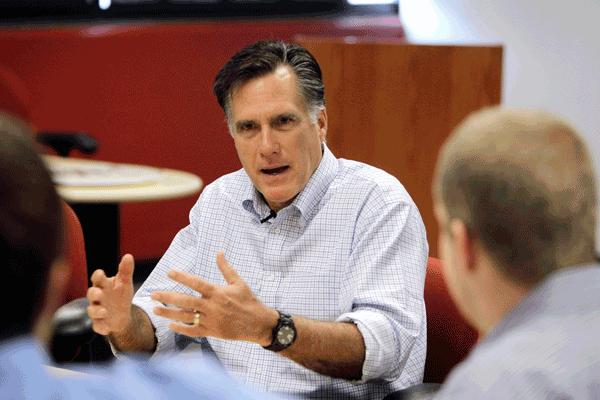Although The Church of Jesus Christ of Latter-day Saints (sometimes mistakenly called the “Mormon Church”) is politically neutral, it takes a stand on social issues it considers important. This means that the Church of Jesus Christ does not support any partisan candidate for office, nor does it instruct its members how to vote, but it does stand up in the town square for what it believes to be moral and right, and this for the good of society.
 Mormons tend to be overwhelmingly conservative politically, with most modern Mormons being Republicans. This is the opposite of the early days of Mormonism in Utah, wherein the Democratic Party was more sympathetic to the values of family life and freedom important to Mormons.
Mormons tend to be overwhelmingly conservative politically, with most modern Mormons being Republicans. This is the opposite of the early days of Mormonism in Utah, wherein the Democratic Party was more sympathetic to the values of family life and freedom important to Mormons.
Mormonism has been in the spotlight recently because of the U.S. presidential election of 2012. Every day there is an article on Mormons or Mormonism in the press. Governor Mitt Romney is the Republican candidate for president, and he has been a Mormon bishop (like a pastor) and stake president (overseeing a number of Mormon congregations). For all intents and purposes, this means he has been a religious servant and leader as well as a prominent and successful businessman and politician.
Since Mormonism has been under the microscope with Romney’s candidacy, it has been maligned as well as clumsily explained. Rarely does one see an article that gets it right. However, as the campaigning has worn on, and we have gotten close to the actual election, things have gotten better.
The tenets of Mormonism are those of ancient Christianity, many of whose tenets have been lost, corrupted, or forgotten. Mormonism would not seem at all strange to any Christian had not Christianity fallen away from the original patterns and organization of Christ’s original church. Mormonism is the restoration of the primitive Christian church with the authority to act in God’s name and the power to do so restored under the guidance of Jesus Christ Himself through heavenly messengers. When things are done right, heaven and earth are closely connected, and communication between them is common.
There are somewhere around 30,000 various Christian sects, and this is an indication of confusion and fractiousness in Christianity. God’s doctrine is found in only one church. If there is a real, and approved, Church of Jesus Christ, then there can be only one, and the others hold only partial truth. If God gives His power and authority to a church, then all the others have not that authority nor that power. He has done so, and The Church of Jesus Christ of Latter-day Saints is God’s church, and the only one with power, authority, and the doctrines of the kingdom.
Because of the presidential election, Mitt Romney has been eyed as the example of the Mormon religion. However, he is not entirely representative of the LDS Church. Mormonism is a global faith, and there are more Mormons outside the United States than in it. Although Mormons stand out for their morality, clean-cut lifestyle, devotion, and happiness, many are poor, helped along by the vast, elegantly organized welfare program of the LDS Church. Education is important to Mormons, and the Perpetual Education Fund, sponsored by the donations of Mormons, helps poor members gain an education.
Mormons do however, lead an abundant life. The paying of tithing — one tenth of one’s income to the Lord — actually adds to the feeling and actual existence of abundance for Latter-day Saints.
Latter-day Saints, believing that the American nation is a covenant nation and should be beholding to God, have always been active in public affairs. If Mitt Romney should win the US presidential election, he will join a plethora of Latter-day Saints already actively engaged in good causes in Washington, D.C. Others who have made their mark there include Reed Smoot, Bob Bennett, Ezra Taft Benson, Larry Echo Hawk, Harry Reid, Orrin Hatch, Michael O. Leavitt, and J. Reuben Clark.
Political Neutrality of the LDS Church
Gale is a former fibro and CMP sufferer. She hopes this information will help other sufferers on their journey to good health.

 Watch a video about the restoration of the gospel on lds.org
Watch a video about the restoration of the gospel on lds.org